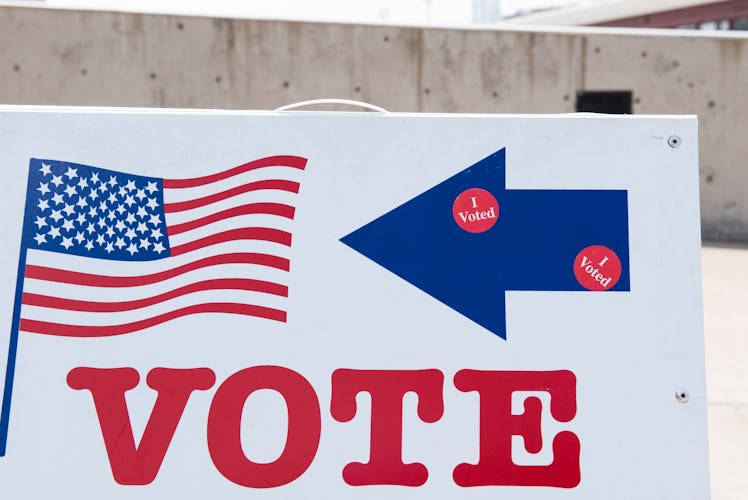
Keep These Basic Voting Rights In Mind When Casting Your Ballot
Election Day is fast approaching, and for some of you it might be the first time you're headed to the polls. While casting your ballot might look a little different this year due to the coronavirus pandemic, you can still get through the process as easily as possible by making sure you know what your rights are while voting. While most of us know we have the right to vote, there are certain rights you should know about when it comes to casting said vote and making sure your voice gets heard.
If you plan to vote in-person on Tuesday, Nov. 3, you might need to plan time off work. Whether or not you are able to take off work on Election Day in order to vote depends on your employer. According to The American Federation of Labor and Congress of Industrial Organizations (AFL-CIO), there's no federal requirement for employers to give time off to employees to vote, and how that's handled varies from state to state. As of October 2020, 30 states allow employees to take off some time to vote. Some states like Arizona will give employees a few paid hours off to go vote, while others like Georgia will give time off, but unpaid.
You can check your state’s policy regarding time off for voting so when you notify your boss, you'll know what your rights are. If you are not able to take off time on Nov. 3 to vote, you can vote early, or, if your state allows, request an absentee ballot.
Once you’re at the polls, there are a few things to keep in mind. For one, don’t leave if you’re still in line when your polling place closes. Even if the line is out the door and around the corner, the polling place must stay open, and everyone who was in line before closing time will still get the chance to cast their ballot. If anyone aggressively questions you about your right to vote, tries to intimidate you, or tells you false requirements to vote, call the Election Protection Hotline at 1-866-OUR-VOTE or 1-888-VE-Y-VOTA (en Español).
In some cases, you may need to cast a provisional ballot. Laws vary from state to state, but according to USA.gov, if you show up to vote at a polling place you haven't been assigned to, then you will need to cast what's called a provisional ballot, which is a ballot that will only be counted after election officials verify your eligibility to vote. If poll workers say your name is not on the list for that polling location, your signature does not match the one they have on record, you don’t have the correct ID, or a poll worker challenges your right to vote, then the polling place is required to give you a provisional ballot instead of a regular one, according to the National Conference of State Legislatures (NCSL). If you cast a provisional ballot, the polling place will give you information you need to check if your vote was counted.
You also have the right to vote without being pressured or influenced into a decision. Every state has a freedom in voting stipulation included in their voter bill of rights that protects voters and their right to choose a candidate on their own. If someone is trying to pressure you to vote a certain way at your polling place, immediately alert a poll worker, call the Election Protection Hotline, or submit a complaint to the Department of Justice at 1-800-253-3931.
Finally, if you cast a mail-in ballot, follow these rules to make sure it's filled out correctly.
Your voice matters. So does your vote. Make sure both are heard and counted in the 2020 election by registering to vote right now.
If you think you’re showing symptoms of coronavirus, which include fever, shortness of breath, and cough, call your doctor before going to get tested. If you’re anxious about the virus’s spread in your community, visit the CDC for up-to-date information and resources, or seek out mental health support. You can find all Elite Daily's coverage of coronavirus here.
This article was originally published on